
Distilling a fine whiskey or award-winning vodka is challenging, but so is the process of getting it bottled.
Bottling and labeling alcoholic beverages is a tedious and time-consuming operation, and when you have minimal or no equipment, labor (especially free labor) is a precious commodity.
At first, many spirits companies rely on friends, family, and the community to get their products from the stills to the store shelves. These volunteers are often paid with a free lunch and a bottle of the spirits they help prepare for customers.
But if you're intent on growing your business, you'll need to increase efficiency and consistency, and volunteer labor won't work as a long term solution. Even paid employees who show up on time for a full workday will not be able to keep up with the comparatively blinding pace of an automated assembly line.
If your craft spirits distillery intends to keep production limited (small batches) and stay connected with the community, then hand bottling will suit you just fine (though a label machine may still be necessary to maintain a professional brand image). Your bottling operation can remain simple and manually driven. Or you may decide to contract bottle to help boost output as demand increases. But if you aim for regional or national distribution, you're going to need to set up a production line, including bottling and labeling equipment.
Moving From Muscle Power to Machine Power
The process of cleaning, filling, and capping the bottles offers many opportunities for a human to make an error. Forgetting to clean a bottle, over or under-filling bottles, spilling product, and improperly sealing corks or caps are all potential hazards that are eliminated with machines. Even veteran employees can make serious errors. Once your operation moves to a completely automated assembly line, these worries are all but eliminated. Not only is the process smoother and far less prone to mishaps or accidents, but it’s faster, too.

Speaking of speed, your fastest volunteer or employee can probably apply somewhere between 300 and 500 labels per hour. A dedicated labeling machine can apply labels at speeds of up to 600 per hour with a far higher degree of consistency and accuracy. A machine can also add labels front and back at the same time to double efficiency. Plus, labeling equipment never calls in sick or takes vacations. Even a small tabletop labeler like Pack Leader USA's ELF-50 can add machine precision and speed to an otherwise manual bottling operation. It’s even small enough to be moved around quickly and easily by a single employee if necessary.
Branding Your Bottles
It’s not enough to ensure every bottle has been cleaned and sterilized, is filled to the proper level, has a straight and well-applied label, and is sealed to protect the spirits within. The end product needs to be attractive to customers, which means paying attention to every detail from the viewpoint of a consumer who might grab your product off a shelf. Your spirits need to have a stunning first impression.
Your bottle shape, color, and labels should align with your brand image and the type of spirit you produce. Bottles can be clear or colored, square or round, short and stubby, tall and slender, and you may choose corks or cork stoppers to align with tradition, modernize with twist-off caps, or even apply spinners, shrinkers, or ROPP caps for an elegant look. If you're aiming to be top-shelf, look at what the top shelf distillers do with their bottles. Options include tamper-evident seals to provide a sense of security to the customer and neck labels to increase the usable space for creative design.

Making Your Labels Legal
Since you're producing alcohol, you're probably aware of the myriad laws and requirements regarding the production and sale of distilled spirits. These include obtaining a Pre-Cola to satisfy the Alcohol and Tobacco Tax and Trade Bureau (TTB), filing the paperwork that allows you to distill alcohol, and getting approval for your labels. Labels are necessary to satisfy regulations, but you also need to think of them as a way to provide essential information to the consumer.
The TTB requires your labels to have the following:
- Brand Name
- Name and Address of the Bottler or Importer
- Alcohol Content
- Health Warning Statement
- Country of Origin
- Class/Type Designation
- Net Contents
.webp?width=568&height=249&name=DistilleryBottlingOperations_LabelingRequirements%20(1).webp)
The required information may force you to have larger or more labels than you originally envisioned, but it must all be there to get your product in stores and on distributors’ shelves. To accommodate required information and produce desired aesthetics, you may want to consider using wrap-around or front and back labels rather than a single front label.
Spirits Labeling Equipment for Distilleries
Handling bottling operations manually is normal for a new distillery, but once you've decided to move towards automation, one crucial piece of equipment to have in your assembly line is an automatic labeler. A labeling machine will apply your labels correctly and precisely each time, saving your distillery time and money and pushing your output to a higher volume.
Check out Pack Leader USA's full line of spirits labeling equipment, which ranges from small tabletop labelers to large inline labelers meant to slot into an assembly line. You can also schedule a free consultation where we'll assess how we can help you find the labeler you need.
Resources:
.webp?width=200&height=114&name=2x-Packleader-logo-large%20(1).webp)

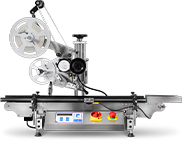
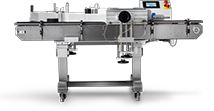
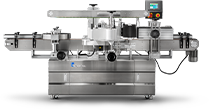
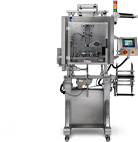
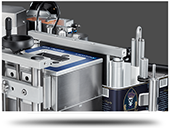
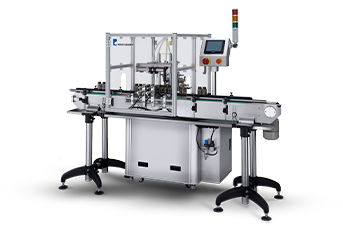
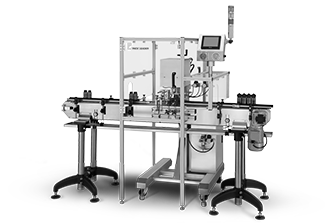
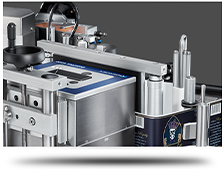





.webp?width=360&name=2x-color-logo%20(1).webp)